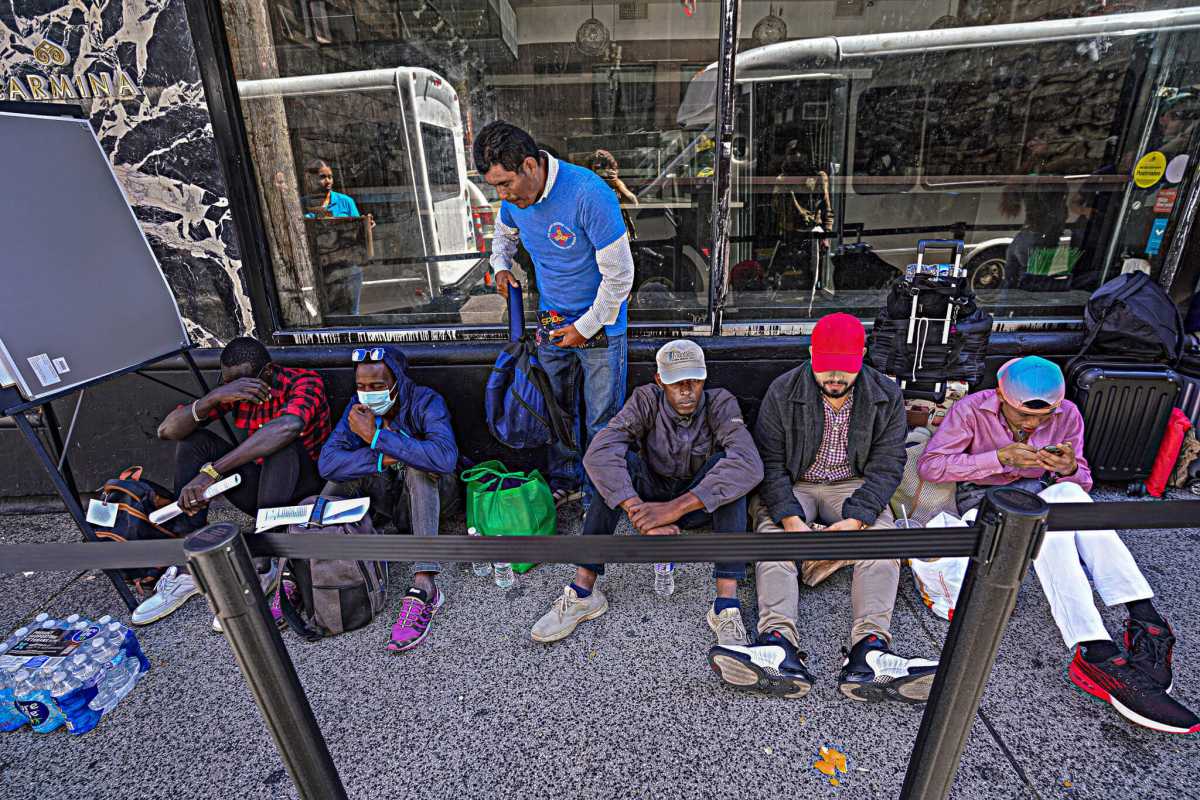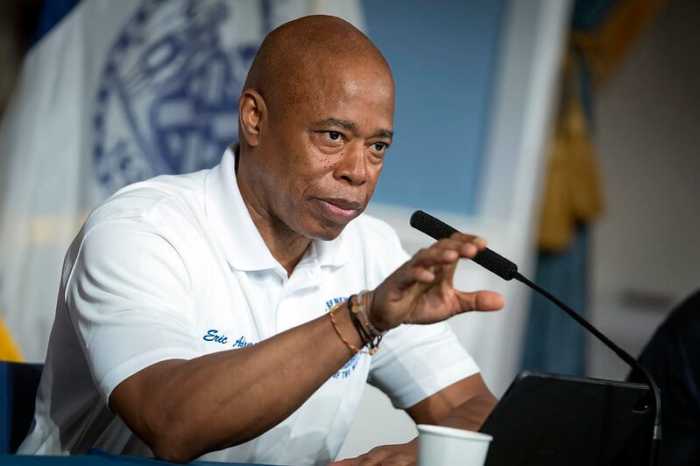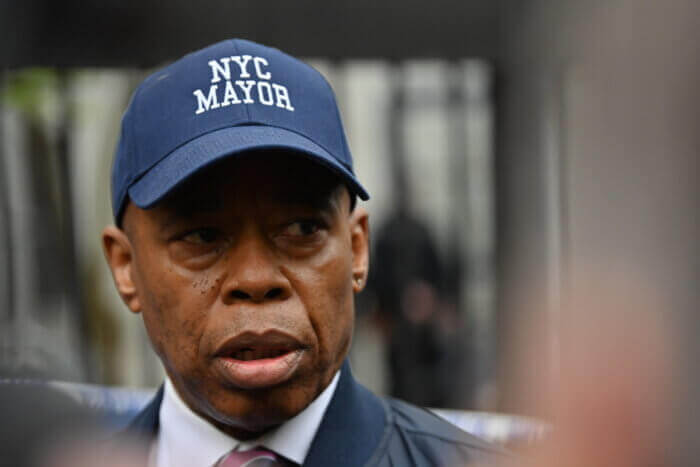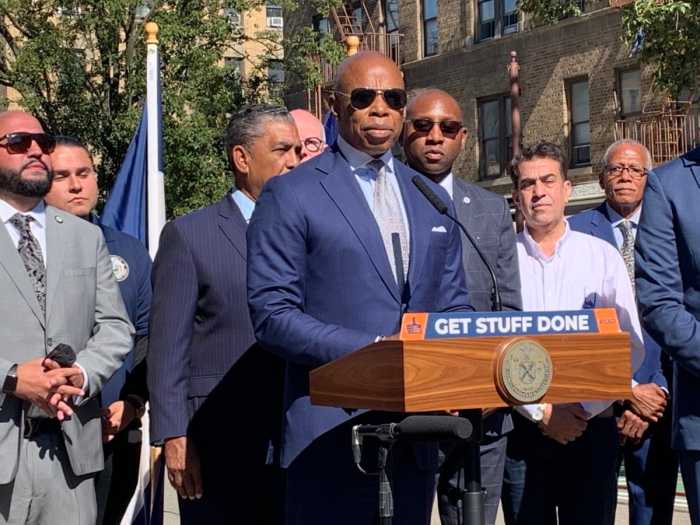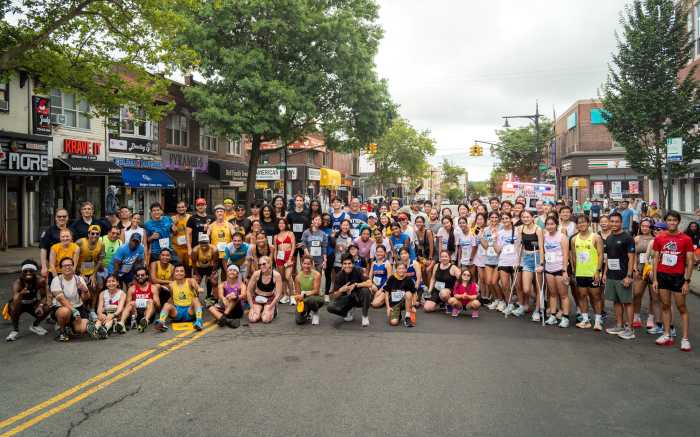The city and state on Thursday agreed, for the time being, to negotiate with homeless advocates on solutions to the migrant crisis rather than charging forward with their legal bid to roll back the Big Apple’s decades-old right-to-shelter law.
The latest development in the months-long legal saga over the right-to-shelter, which stipulates the city must provide shelter to anyone in need, came during an Oct. 19 Manhattan Supreme Court conference.
It follows Mayor Eric Adams’ request of the court earlier this month to suspend the right-to-shelter whenever there is a significant spike in the shelter population and a declared city or state emergency. Opponents of the mayor’s request argue that it could leave thousands of homeless people sleeping on the streets.
The city has moved for the change as a way to alleviate the massive strain it says providing for over 130,000 migrants, 64,000 of whom are currently in its care, has placed on its resources and finances. Adams’ office contends it is simply seeking “flexibility” with the request and not to completely lift the city’s shelter obligations.
Gov. Kathy Hochul last week formally supported the city’s request, with her attorney calling it “measured and appropriate.”
The Legal Aid Society, which represents the Coalition for the Homeless in the case that established right-to-shelter, has blasted the city’s request and the state’s support for it in separate letters in recent weeks. The organization charge the move would “eviscerate” the shelter mandate and lead to migrants and long-time homeless New Yorkers alike sleeping outside as the winter fast approaches.
However, instead of moving forward with its request on Thursday, the city and state agreed to negotiate solutions to housing and providing for migrants with Legal Aid under the supervision of the judge in the case: Gerald Lebovits.
“There should not be a war of legal papers,” Lebovits said. “For now, the solution is to try to settle the matter if possible and to solve whatever problem might exist. To that effect, we have agreed that the proper path forward is to discuss logistics and nuts and bolts confidentially.”
The negotiations will start next week and will occur in person, over the phone or via video conference, but it is unclear how long the process could last.
Legal Aid attorney Josh Goldfein, in a press conference following the conference, said the three parties in the case came to the agreement because none of them want to see massive numbers of homeless people being left to languish on the streets.
“The whole point of this exercise is to put aside the legal skirmishing and just take a minute to see, can we solve the problem together?” Goldfein said. “Nobody wants to see people on the streets exposed to the elements at risk of injury or death. Nobody wants to live in a New York City where they don’t feel like their neighbors are protected.”
When contacted by amNewYork Metro, the mayor’s office did not specifically comment on Thursday’s court conference, instead reiterating past sentiments that the decision that established right-to-shelter “was never intended to apply to the extraordinary circumstances.” Furthermore, the administration says that it is simply asking for the city’s shelter responsibilities to be aligned with the state’s other counties, which do not have the same shelter mandate.
A spokesperson for Hochul’s office said, “We hope mediation will produce a timely, appropriate resolution.”
Goldfein said the immediate aim is to meet with the city and hash out how to ensure there is a bed for every migrant and homeless New Yorker.
“The goal for the next week plus is to sit down and go through what do we need to do to make sure that there’s a bed for everyone?” Goldfein said. “Whether it’s moving people out who are already here, discouraging people from coming who don’t need to come here, or ensuring that New Yorkers have a place to go.”
The negotiations will also give time for some of the strategies the city and state have put in place to deal with the influx to start seeing results. Those include a push by the city to help migrants apply for work authorizations, asylum and Temporary Protected Status (TPS).
On top of its bid to suspend the right-to-shelter, the administration has also imposed time limits on shelter stays for single adult migrants and now families. City Hall has billed the caps, which stand at 30 days for single adults and 60 days for families, as a means of helping migrants “take the next step” in moving out of shelter and finding more permanent housing.
But the moves have been widely criticized by homeless and immigrant advocates, who contend the time limits are arbitrary and unnecessarily destabilize migrants.
The rule for families has drawn the most acute pushback, with advocates arguing it will be disruptive to school-aged children, who may be forced to travel much further to their schools or switch to new ones. Although, the mayor pledged earlier this week that “no child will have their education interrupted.”
Council Speaker Adrienne Adams, during an unrelated news conference on Thursday, panned the policy.
“The policy really is concerning and puzzling, as it goes against the administration’s previous insistence on ensuring the safety of families with children,” she said. “Instead, it now has the potential to exacerbate street homelessness, destabilize the lives of children and families and place children in unsafe situations, which is something that of course we don’t want to see.”



